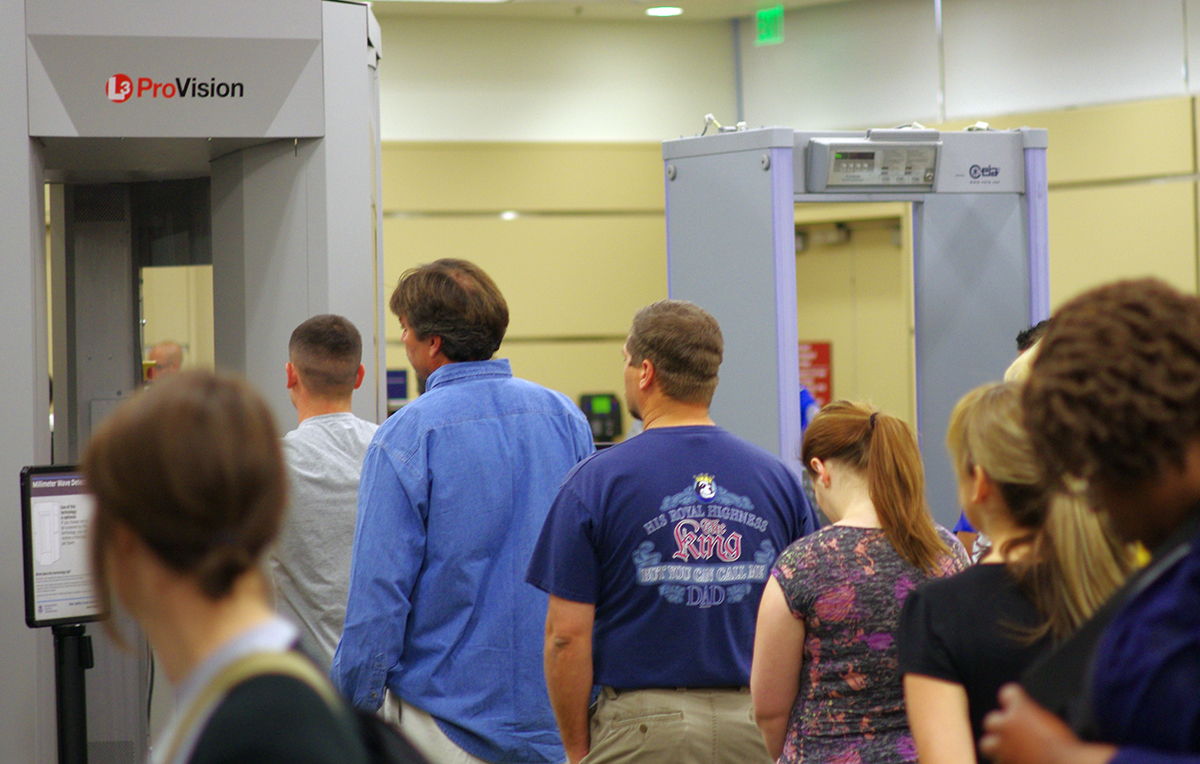WASHINGTON — If the first step to solving any problem is to recognize there is one, the embattled Transportation Security Administration has taken a step forward, agency officials told the Senate Tuesday.
TSA chief Peter Neffenger assured the Homeland Security Committee that his team put sweeping reforms in place after 2014 audits showed an agency that, faced with balancing between efficiency and security, managed neither.
“We’re beginning to see positive results,” said Neffenger, the retired Coast Guard admiral who took over as administrator of the much-maligned agency in July 2015. The TSA was created in the wake of the Sept. 11, 2001, attacks on the World Trade Center and the Pentagon.
Neffenger told the committee that he’s taken post-audit recommendations from the inspector general and from the Government Accountability Office to heart, retraining the entire workforce, hiring 768 new officers and ceasing “risky practices” that left airports vulnerable.
Meanwhile, he says he’s brought wait times down for passengers. Over the Memorial Day weekend, traditionally a busy travel time, Neffenger said 99 percent of passengers waited less than half an hour in security lines. Ninety-three percent waited less than 15 minutes.
That’s a stark contrast from earlier troubles at Chicago’s O’Hare airport, which Neffenger visited at the suggestion of Sen. Tom Carper, D-Del., after long lines in May prompted outrage.
“What happened in Chicago was truly, in my opinion and my investigation, just a failure to get enough lanes open in advance for the increased volume that day,” Neffenger said. “Once you’re behind, it’s very challenging to catch up.”
Key to the agency’s recovery is a focus on the nation’s largest airports.
“If you can prevent problems from happening there, you don’t have problems that cascade throughout the system,” Neffenger said.
John Roth, the inspector general at the Department of Homeland Security, agreed that the TSA is making progress under Neffenger.
“We’re in a different place now than we were last June,” Roth told the committee, adding that the agency is, “for the first time in memory,” acknowledging its faults and problems.
“We have gone from night to day,” he said, from a culture that fought the IG at every turn to one that embraces their assistance.
Still, both Neffenger and Roth, as well as GAO homeland security director Jennifer Grover, agree that despite promising first steps, the agency has plenty of work ahead of it.
“These are issues that will take some time to correct,” Neffenger said. Much of the problems with the agency, he added, were issues that occurred before his tenure — issues he was brought in to correct. Roth agreed.
“We didn’t get into this overnight,” Roth said. “We won’t get out of it that fast either.”
Photo at top by David Prasad, used under Creative Commons.

